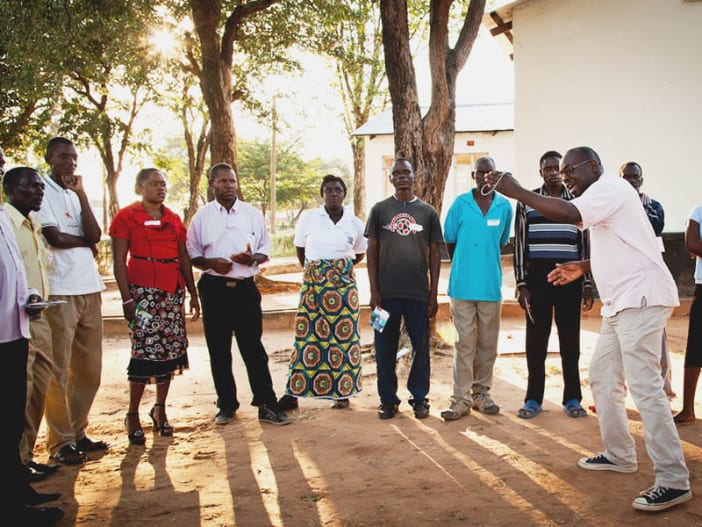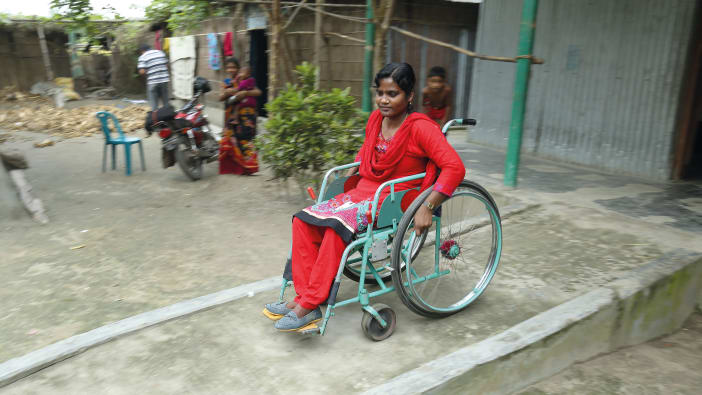by Rachel M Smith.
Cambodia has one of the highest rates of people with disabilities in the world, partly a result of years of war and civil conflict. Nearly half of Cambodia’s population is under the age of 18, so many people with disabilities in Cambodia are in fact children.
Difficult decisions
Many parents find it difficult to care for a child with multiple and severe disabilities. If one family member remains at home to care for the child, then there is one less person who can earn much needed income. With few rural support services, parents have difficult decisions to make and many will abandon the child to a government orphanage. In one orphanage located in the capital city of Phnom Penh, there are 60 children with disabilities out of a total number of 144 children.
Sophal has been living at a government orphanage for most of his life. He has severe epilepsy. Sophal does not have the ability yet to speak or to take care of his own basic needs. When I first met him, he sat tied in a chair for most of the day. The staff reported that Sophal had such severe seizures, they were afraid to let him play. Sophal often had large bumps on the left side of his forehead and continued to injure himself in the same place. How could we help Sophal?
Prosthetics in Cambodia
Many land mines still remain in Cambodia after the war. As a result, many of the services for the disabled have concentrated on providing artificial legs (prosthetics) and similar aids. One centre in Phnom Penh trained students to make these aids. They were asked to design something to help Sophal, using an illustration from the book Disabled Village Children by David Werner.
The students were excited about the opportunity to help. It was a different challenge for them. They took the materials normally used for the prosthetic devices and moulded a ‘helmet’ to fit the exact shape of Sophal’s head. The device was very lightweight and strong. It also matched the skin tone of Sophal so was not too noticeable.
Sophal’s injury has finally healed. He walks around now and is beginning to discover the world around him. I see his slightly crooked smile and I am grateful that people were willing to try something new in order to help Sophal.
Rachel M Smith works with the Disability Action Council (DAC) in Phnom Penh, Cambodia. This co-ordinates government, NGOs and international organisations working with and for people with disabilities living in Cambodia.
E-mail: [email protected]








